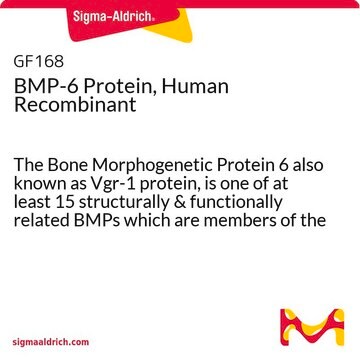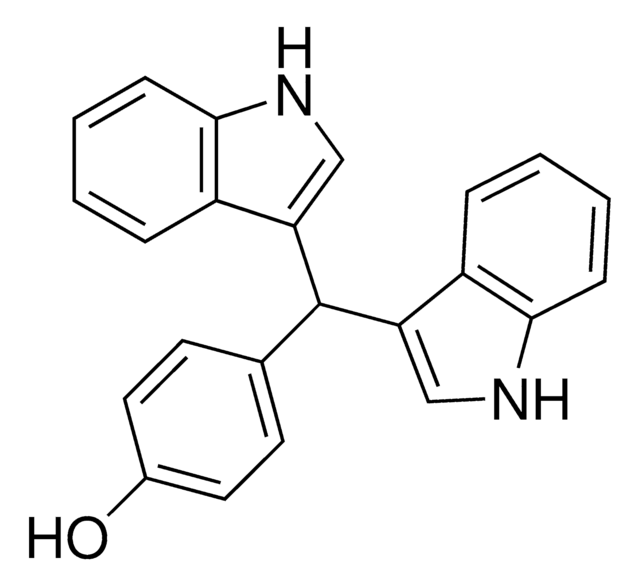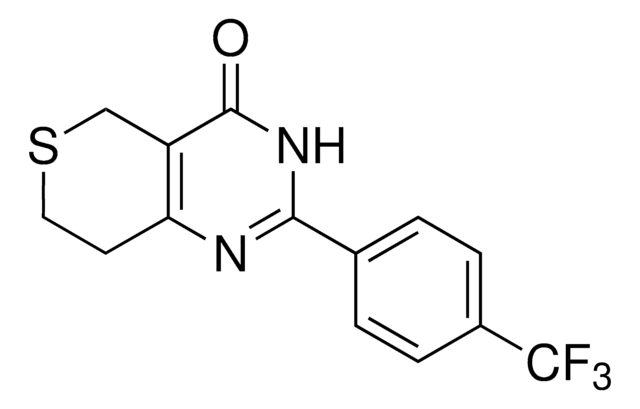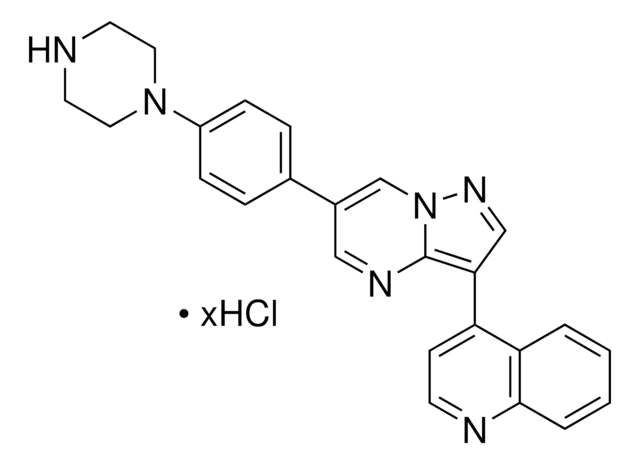SRP3017
BMP-6 human
recombinant, expressed in HEK 293 cells, ≥95% (SDS-PAGE), ≥95% (HPLC), suitable for cell culture
Synonym(s):
VGR
About This Item
Recommended Products
biological source
human
recombinant
expressed in HEK 293 cells
Assay
≥95% (HPLC)
≥95% (SDS-PAGE)
form
lyophilized
potency
0.03-0.06 μg/mL ED50
mol wt
26.2 kDa
packaging
pkg of 10 μg
technique(s)
cell culture | mammalian: suitable
impurities
<0.1 EU/μg endotoxin, tested
UniProt accession no.
shipped in
wet ice
storage temp.
−20°C
Gene Information
human ... BMP6(654)
General description
Recombinant human BMP-6 is a 26.2kDa homodimeric glycoprotein consisting of two 117 amino acid subunits, which correspond to amino acid residues 397 to 513 of the full-length BMP-6 precursor.
Biochem/physiol Actions
Sequence
Physical form
Reconstitution
Storage Class Code
11 - Combustible Solids
WGK
WGK 3
Flash Point(F)
Not applicable
Flash Point(C)
Not applicable
Regulatory Listings
Regulatory Listings are mainly provided for chemical products. Only limited information can be provided here for non-chemical products. No entry means none of the components are listed. It is the user’s obligation to ensure the safe and legal use of the product.
JAN Code
SRP3017-10UG:
Certificates of Analysis (COA)
Search for Certificates of Analysis (COA) by entering the products Lot/Batch Number. Lot and Batch Numbers can be found on a product’s label following the words ‘Lot’ or ‘Batch’.
Already Own This Product?
Find documentation for the products that you have recently purchased in the Document Library.
Customers Also Viewed
Our team of scientists has experience in all areas of research including Life Science, Material Science, Chemical Synthesis, Chromatography, Analytical and many others.
Contact Technical Service










